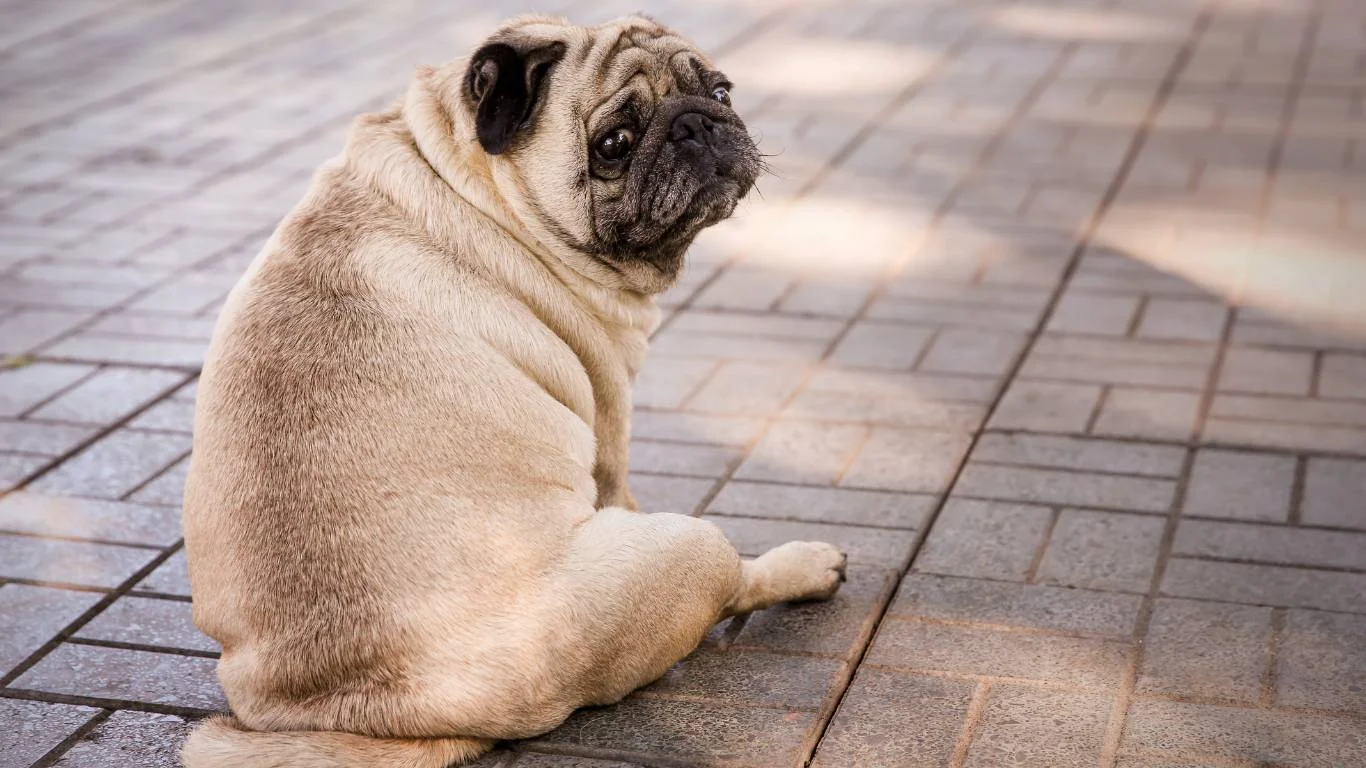Powerful Natural Ways to Support Dog Liver Detoxification Today
When you’ve spent as much time around dogs as I have — both at home and at the clinic — you start to notice the little signs when something’s off. One topic that’s come up a lot lately from clients and fellow dog parents is natural ways to support dog liver detoxification. And let me tell you, it’s not just a buzzword or trendy wellness thing. Supporting liver health can seriously improve your dog’s quality of life. From my time assisting in veterinary practices (especially with a nutrition focus), I’ve seen firsthand how subtle tweaks in a dog’s routine can go a long way.
Why Your Dog’s Liver Needs Some Love

Okay, let’s get real for a second. The liver is like your dog’s personal detox center. It processes all the gunk — toxins, medications, synthetic additives, even pesticides from the grass they love rolling around in. But here’s the kicker: most dog parents don’t realize their pups are exposed to so many hidden toxins every single day.
I’ve worked with dogs who seemed healthy on the outside — bright eyes, wagging tails — but after some routine bloodwork, their liver enzymes told another story. That’s why it’s so important to be proactive, not reactive. Supporting liver health early can help avoid long-term damage and vet bills that sneak up on you later.
Spotting the Signs of a Sluggish Liver

Now, I’m not saying you need to freak out every time your dog skips a meal or looks a little tired, but certain symptoms could be your dog’s way of saying “Hey, something’s up.”
Some subtle (and not-so-subtle) signs include:
- Fatigue or low energy levels
- Yellowing of the gums, eyes, or skin (yep, jaundice in dogs is real!)
- Unexplained weight loss
- Loss of appetite
- Digestive upsets like vomiting or diarrhea
- Unusually bad breath (like, worse than the usual doggy breath)
When I notice even a couple of these signs in a client’s dog, I always suggest checking liver function and considering some gentle, natural support strategies.
Natural Ways to Support Dog Liver Detoxification

This is where things get interesting. The liver is actually pretty awesome at detoxing on its own, but modern life — with all its chemicals, pollutants, and over-processed pet foods — makes it work overtime. That’s where a little help from Mother Nature comes in. Here are some of my favorite vet-approved, nutritionist-endorsed tips that I’ve seen work wonders for dogs in my care.
1. Add Liver-Friendly Foods to Their Bowl
Food is medicine — seriously. I’ve seen dogs bounce back just by tweaking what’s in their bowl. Here are a few superstar ingredients:
- Leafy Greens: Dandelion greens and kale are packed with chlorophyll, which helps cleanse the liver.
- Blueberries: Antioxidant-rich and super tasty — my clients love mixing these into meals as treats.
- Turmeric: This golden root reduces inflammation and supports detox pathways (just make sure it’s paired with black pepper for absorption).
- Cruciferous veggies: Like broccoli and Brussels sprouts (in moderation) boost enzyme production for detox.
Pro tip from the clinic: Always introduce new foods slowly, and watch for any sensitivities or digestive upset. What works for one dog may not suit another, especially if they’ve got underlying conditions.
2. Support with Gentle Herbal Supplements
There’s a growing interest in herbal supplements for pets — and for good reason. I’ve worked alongside vets who swear by herbs like milk thistle and burdock root. These aren’t some fringe remedy; they’re backed by solid science and clinical results.
- Milk Thistle: Probably the most well-known liver support herb. It’s rich in silymarin, which helps regenerate liver cells.
- Burdock Root: Acts as a blood purifier and helps with toxin elimination.
- Artichoke Leaf: Encourages bile production, which is essential for fat digestion and detox.
I used to think these were a little “woo-woo,” but after seeing sluggish pups perk up after a few weeks of herbal support, I became a believer. Just make sure to use pet-safe formulations, and always chat with your vet before starting any new supplement.
3. Reduce the Chemical Load Around Your Dog
This one’s a bit less obvious but SO important. The number of synthetic chemicals dogs absorb through their skin, food, and air is wild. Think flea meds, lawn pesticides, household cleaners… it adds up fast.
Here’s what I suggest:
- Switch to natural flea and tick preventatives when possible
- Use non-toxic cleaning products in the house (your dog’s paws absorb everything they walk on!)
- Filter their drinking water — even just a basic carbon filter helps remove heavy metals and chlorine
Honestly, one of the best things I did for my own dog was swap out harsh cleaning sprays and ditch the synthetic air fresheners. Within weeks, her itchy skin calmed down, and she wasn’t licking her paws constantly anymore. Sometimes the “detox” starts at home.
Detoxing Through Daily Routines

One thing I always remind pet parents is that liver detox isn’t just about what goes in the bowl — it’s also about your dog’s overall lifestyle. Back when I worked in a holistic-focused clinic, we often emphasized simple routines that helped dogs detox naturally without needing extreme changes.
For example, regular movement plays a HUGE role in liver function. Exercise gets blood and lymph moving, helps oxygenate tissues, and supports toxin elimination. No need for intense agility runs (unless your dog loves that) — even a couple of walks a day or light play in the yard makes a real difference.
I had a client with a senior beagle, Lucy, who had borderline liver values. We didn’t do anything drastic — just added a short morning walk, swapped her dry food for a fresher, more hydrating diet, and added a few detox-supporting herbs. Three months later, her vet was honestly surprised by her turnaround. It’s the little things, y’all.
Try These Routine Detox Boosters:
- Daily brushing: Stimulates circulation and helps eliminate waste through the skin
- Hydration breaks: Keep a few bowls of fresh, filtered water around the house
- Stress reduction: A calm pup is a healthy pup — puzzles, slow sniff walks, and cuddle time all help
- Quality sleep: Detox pathways ramp up at night, so restful sleep is key
Hydration: The Underrated Liver Ally

I can’t talk about natural ways to support dog liver detoxification without raving about the power of good ol’ H2O. Hydration is so simple, but it’s often overlooked. I’ve had countless conversations with dog owners who thought their pup was drinking enough — until we measured. Spoiler alert: they usually weren’t.
Your dog’s liver needs water to flush out waste. Period. Dehydration slows everything down, from bile production to kidney function, which indirectly burdens the liver even more.
Easy Ways to Increase Your Dog’s Water Intake:
- Broth Boost: Add a splash of low-sodium bone broth to water bowls to make it more enticing
- Hydrating Foods: Mix in fresh cucumbers, watermelon (seedless!), or cooked zucchini with meals
- Water Fountains: Dogs love running water — and yes, they make cute pet fountains for that
- Wet Food Rotation: Alternate kibble with fresh or gently cooked meals to up moisture
Personally, I keep a thermos of bone broth in the fridge and pour a little into my dog’s meals a few times a week. It’s nutrient-dense and helps sneak in extra hydration without any fuss.
Liver-Safe Treats That Dogs Actually Love

If you’re like me, treats are a big part of your relationship with your pup — training, bonding, bribery during nail trims (don’t judge). But here’s the catch: a lot of commercial treats are full of preservatives, coloring agents, and fillers that don’t do the liver any favors.
Switching to liver-supportive treats is one of the easiest upgrades you can make. Here’s a little cheat sheet of my go-to picks — most of which I’ve used with both my own dogs and clients’ pets.
My Favorite Detox-Friendly Treat Ideas:
- Freeze-Dried Liver: Ironically, small portions of actual liver (beef, chicken) are packed with nutrients like B vitamins and CoQ10
- Carrot Coins: Crunchy, sweet, and full of fiber
- Turmeric Bites: Homemade snacks with turmeric, black pepper, and coconut oil
- Green Bean Snaps: Great for weight management and low-calorie nibbling
I even hosted a mini “treat-making” workshop once at the clinic I worked at — we had pet parents mix up simple treats with things like ground flax, turmeric, oats, and a smidge of raw honey. The dogs loved them, and people felt empowered knowing exactly what they were giving their pets.
When to Talk to Your Vet (Yes, Even for Natural Stuff)
One thing I always emphasize — and this is super important — is that “natural” doesn’t automatically mean “safe” in every case. I’ve seen well-meaning dog parents try homemade remedies or start giving supplements without realizing they were interacting with medications or exacerbating a hidden issue.
Liver health is too important to guess on. If your dog is already on meds, has elevated liver enzymes, or is dealing with chronic illness, always loop your vet in. There are even veterinarians who specialize in integrative or holistic care, and they’re absolute gold when it comes to balancing traditional treatment with natural support.
One of the vets I worked with during my assistant days was a stickler for bloodwork before starting any detox protocol — and honestly, that was smart. It gave us a baseline and helped track improvement. Plus, it prevented trial-and-error guesswork with herbs or foods that might’ve caused harm.
Key Times to Call Your Vet:
- Your dog shows multiple symptoms of liver stress (yellow gums, vomiting, etc.)
- You plan to start a new supplement regimen
- Your dog has been exposed to toxins (medication overdose, mold, etc.)
- Bloodwork already shows abnormal liver values
Think of your vet as a partner — not an obstacle — in your dog’s wellness journey. I’ve seen amazing results when both natural care and medical knowledge come together. That combo? That’s where the real magic happens.
Building a Liver-Smart Meal Plan

Let’s talk food again — but this time, from a whole-meal perspective. When I was assisting with nutritional consults at the vet clinic, one of my favorite parts was helping pet parents build liver-supportive diets that weren’t boring or complicated. The goal? Keep it nutrient-rich, low on toxins, and easy to digest.
You don’t have to go full raw or cook gourmet meals daily (unless you want to!). Even just improving the *quality* of the ingredients and removing junk can have a big impact. Trust me, I’ve watched sluggish dogs regain energy, clear up skin issues, and improve bloodwork — all from upgrading the stuff in their bowl.
Essential Elements for a Liver-Friendly Diet:
- Lean Proteins: Turkey, chicken, white fish — easy on the liver, rich in amino acids
- Healthy Fats: Omega-3s from wild salmon or flaxseed oil help fight inflammation
- Detox Veggies: Steamed broccoli, cauliflower, kale (just small amounts!)
- Complex Carbs: Quinoa, sweet potatoes, or brown rice for stable energy
Pro Tip: When in doubt, go fresh and skip the fillers. Avoid artificial preservatives (like BHA/BHT), unnamed meat by-products, and “flavor enhancers” that read like a chemistry quiz. If you can’t pronounce it — probably not liver-friendly.
A Sample Meal Plan I Recommend Often:
- Cooked ground turkey (protein)
- Steamed sweet potatoes (fiber + low GI carb)
- Lightly sautéed spinach and zucchini (detox boosters)
- Drizzle of flaxseed oil (omega-3s)
- Pinch of milk thistle powder (herbal liver support)
Always transition meals slowly — 25% new to 75% old at first — to avoid GI upset. And of course, work with your vet or a certified canine nutritionist for personalized tweaks.
Detox Isn’t a One-Time Fix — It’s a Lifestyle

Here’s something I had to learn the long way: supporting your dog’s liver isn’t about doing one “cleanse” and calling it a day. It’s about creating an environment and lifestyle that *consistently* reduces toxic load and gives the liver space to do its thing.
One client I worked with had a pug named Charlie who was constantly dealing with itchy skin, ear infections, and smelly breath. We did a full reset — switched to a limited-ingredient fresh food diet, stopped using synthetic air fresheners, and added a gentle herbal liver support blend. Within two months, his coat looked shinier, and his constant licking stopped. The difference was night and day.
Lifestyle Habits That Reinforce Liver Health:
- Use air purifiers indoors: Less airborne toxins = less work for the liver
- Wash paws after walks: Especially if you’ve walked through grass treated with fertilizers or pesticides
- Stick to minimal vaccine protocols: With your vet’s guidance, avoid over-vaccination
- Rotate proteins and veggies: Prevents food sensitivities and keeps meals nutritionally balanced
Liver care is a long game. The earlier you start and the more consistent you are, the better your dog’s health will be — not just in terms of detox, but overall energy, immunity, and longevity.
Expert Sources That Back This Up
I know there’s a lot of info out there, and not all of it is trustworthy. That’s why I always point pet parents to credible, science-backed resources. Here are a few of my go-tos when I’m researching or fact-checking something for a client:
- PetMD — Great breakdowns on supplements and liver conditions
- AKC — Their health section is a solid start for most dog wellness questions
- NIH — For digging into ingredient studies or liver function research
- Health — Helpful human parallels that often overlap in detox principles
And of course, always bring your vet into the conversation. No article (not even this one!) can replace personalized veterinary care.
Disclaimer
Disclaimer: The information in this article is based on personal experience as a veterinary assistant and nutrition-focused pet care provider, and is for educational purposes only. It is not a substitute for professional veterinary advice, diagnosis, or treatment. Always consult with your veterinarian before making changes to your dog’s diet, supplement routine, or medical plan.





